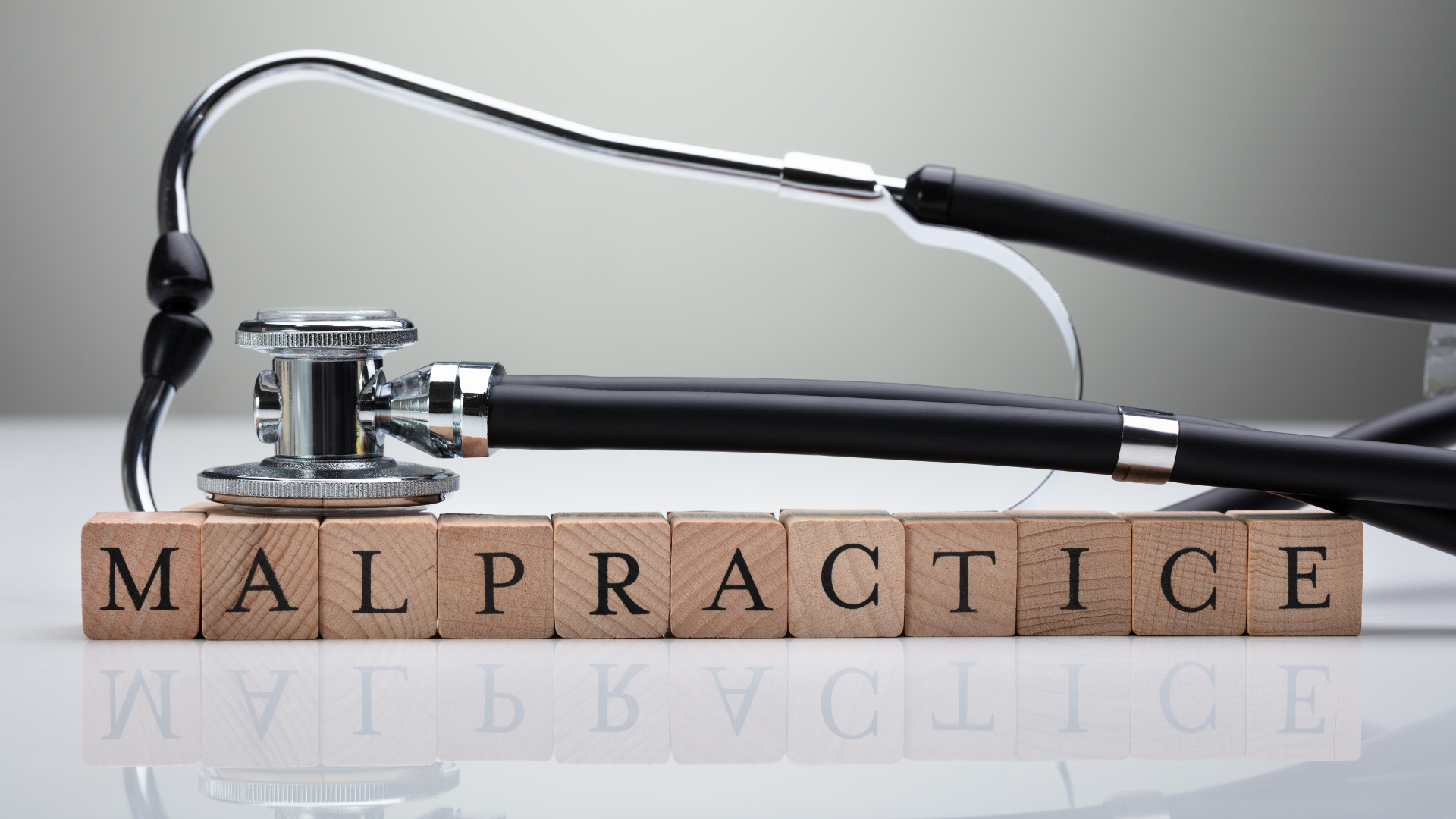Click to change language >>>
Top 20 mistakes doctors make that result in medical malpractice claims
Top 20 mistakes doctors make that result in medical malpractice claims

If your doctor makes a mistake, even a small one, it can have life-changing consequences for you. Medical malpractice is a serious concern in healthcare, where errors can disrupt or damage lives. Below, you'll find 20 of the most common mistakes doctors can make that may lead to malpractice claims, with explanations, examples, and supporting research to help you understand the risks and implications.
1. Misdiagnosis
If your doctor misdiagnoses you, it can lead to inappropriate or delayed treatment, putting your health at risk. Misdiagnosis happens when a healthcare professional incorrectly identifies your condition, which can result in significant harm. According to the National Academies of Sciences, Engineering, and Medicine, diagnostic errors affect about 5% of U.S. adults seeking outpatient care each year, and nearly half of these errors can cause harm. BMJ Open
For example, if you show symptoms of a heart attack but are misdiagnosed with indigestion, you may not receive the critical treatment you need in time, increasing the likelihood of severe complications or even death.
2. Delayed Diagnosis
If your doctor delays your diagnosis, it can seriously impact your health and reduce the chances of successful treatment. A delayed diagnosis occurs when there is a significant lapse of time before the correct diagnosis is made, which can worsen your condition. Research published in BMJ Open shows that diagnostic delays are often linked to poorer outcomes, especially in conditions like cancer. BMC CommunityForum
For example, if you exhibit early signs of cancer but are not diagnosed promptly, the disease may progress, making treatment less effective and decreasing your chances of recovery.
3. Surgical Errors
If your surgeon makes a surgical error, it can lead to serious complications and even harm that could have been avoided. Surgical errors include mistakes like operating on the wrong site, leaving instruments inside your body, or other preventable mistakes. Research has shown that using surgical safety checklists can significantly reduce the likelihood of such errors.
Europe PMC
For example, if a surgeon performs a procedure on the wrong limb, you may require additional surgery and face unnecessary pain and recovery time, leading to a preventable harm.
4. Medication Errors
If your doctor or nurse makes a medication error, it can put your health at serious risk. Medication errors include administering the wrong drug, giving an incorrect dosage, or failing to account for dangerous drug interactions. The Institute for Safe Medication Practices (ISMP) offers resources to help prevent these kinds of errors in healthcare.
BMJ Open Quality
For example, if you're given a medication you're allergic to, it could trigger a severe allergic reaction that could have been avoided with proper medication reconciliation and careful review of your medical history.
5. Failure to Obtain Informed Consent
If your doctor fails to obtain informed consent, it can lead to serious issues with your treatment. Informed consent is the process of ensuring you're fully educated about the risks, benefits, and alternatives of a proposed treatment or procedure. The American Medical Association stresses that obtaining informed consent is both an ethical and legal requirement to respect your autonomy as a patient.
BMJ Open Quality
For example, if you undergo a surgical procedure without being properly informed of the potential risks, you could face unexpected complications, which may lead to a malpractice claim.
6. Improper Treatment
If your doctor provides improper treatment, it can lead to unnecessary complications and even harm. Improper treatment happens when medical care falls short of accepted standards, putting you at risk. Following evidence-based guidelines is essential to ensure you receive appropriate and effective care. BMJ Open
For example, if you’re prescribed antibiotics for a viral infection, not only will it be ineffective, but it can also contribute to antibiotic resistance, creating a public health risk that affects many others as well.
7. Failure to Diagnose a Condition
If your doctor fails to diagnose a serious condition, it can lead to irreversible harm or even be life-threatening. Missing a diagnosis, especially for critical illnesses like cancer or autoimmune diseases, can delay the treatment you need. Research from BMJ Quality & Safety shows that diagnostic failures contribute to around 10% of patient deaths and 6-17% of hospital-related adverse events.
BMC Community Forum
For example, if signs of a stroke are overlooked, you could face long-term neurological damage that might have been prevented with timely care.
8. Premature Discharge
If you’re discharged from the hospital before you’re ready, it can put your health at serious risk. Premature discharge happens when patients are released before it’s medically safe, which can lead to complications or the need for readmission. Studies show that early discharge not only increases the likelihood of return visits to the hospital but also raises healthcare costs.
BMC Community Forum
For example, if you're sent home too soon after surgery, you might develop an infection that requires you to go back for more treatment—something that could have been prevented with a longer initial stay.
9. Inadequate Follow-Up Care
If your healthcare provider doesn’t arrange proper follow-up care after treatment, it can leave potential complications or recurrences unchecked. Inadequate follow-up happens when there isn’t enough monitoring of your progress, which can impact your recovery and health outcomes. Effective follow-up is essential to ensure your treatment is working as intended and to make any necessary adjustments.
Frontiers
For example, if you're treated for hypertension but don’t receive follow-up appointments, your blood pressure might remain uncontrolled, increasing your risk of serious complications like stroke.
10. Anesthesia Errors
If your anesthesiologist makes an error, such as administering the wrong dosage, not monitoring you closely enough, or using faulty equipment, it can lead to severe complications or even life-threatening issues. Anesthesia errors are critical because they directly impact your body’s essential functions, like breathing and heart rate, while you're under sedation. The Anesthesia Patient Safety Foundation has established guidelines to help prevent these kinds of incidents and enhance patient safety.
BMJ Open Quality
For instance, if you’re given an excessive dose of anesthesia, it could cause prolonged unconsciousness or serious respiratory problems, leading to a longer recovery and increased health risks.

11. Failure to Order Appropriate Tests
If your doctor doesn’t order the right diagnostic tests, critical conditions could go undiagnosed, leading to delayed or missed treatment. Failing to conduct necessary tests is a common cause of diagnostic errors, often worsening patient outcomes, as highlighted in a study published in BMJ Quality & Safety.
BMC Community Forum
For example, if you're experiencing ongoing headaches and your doctor overlooks an MRI, a potential brain tumor could be missed, leading to severe complications or even death. Proper testing is essential to prevent such life-threatening oversights.
12. Ignoring Patient History
If your doctor doesn’t take a complete patient history, it can lead to serious mistakes in your care. A thorough medical history is crucial for accurate diagnoses and safe treatment choices, as emphasized by the American Medical Association.
BMJ Open Quality
For example, if a medication is prescribed without noting your known allergies, you could experience a severe reaction that could have been easily prevented with proper documentation and attention to detail.
13. Improper Use of Medical Equipment
If medical equipment is misused or poorly maintained, it can have life-threatening consequences for you as a patient. Ensuring that healthcare providers are properly trained and that equipment undergoes regular inspections is essential to avoid such risks, as emphasized in BMJ Open Quality.
BMJ Open Quality
For example, if a malfunctioning defibrillator is used during your cardiac emergency, it may fail to restore your heartbeat, potentially leading to a tragic outcome.
14. Failure to Communicate with Other Physicians
Effective communication among healthcare providers is crucial for ensuring coordinated care. If communication breaks down, it can result in fragmented care and medical errors, as highlighted in BMJ Open Quality.
BMJ Open Quality
For example, if your primary care physician fails to inform a specialist about your medication regimen, it could lead to a harmful drug interaction that jeopardizes your health.
15. Improper Monitoring
Failing to monitor patients adequately, especially in critical or post-operative situations, can lead to life-threatening complications. Continuous monitoring is essential for detecting and responding to changes in a patient's condition promptly, as emphasized in Critical Care Medicine.
Journals
For example, if you are recovering from surgery and aren't properly monitored, internal bleeding could go unnoticed, leading to severe complications or even death.
16. Ignoring Test Results
Failing to act on critical test results can lead to serious and potentially life-threatening consequences. Prompt follow-up is essential to ensure patient safety and prevent harm, as highlighted in BMJ Open.
BMJ Open
For instance, if your doctor neglects to follow up on an abnormal test result, such as an untreated infection, it could worsen, leading to severe complications. Similarly, if a malfunctioning defibrillator is used during a cardiac emergency, it may fail to restart your heart, resulting in a tragic and preventable outcome.
17. Failure to Prevent Infections
Hospital-acquired infections (HAIs) are a significant concern and can result from inadequate sterilization or poor hygiene practices. It's crucial for healthcare providers to follow proper infection control protocols, including hand hygiene and equipment sterilization, to prevent these infections. The Centers for Disease Control and Prevention (CDC) offers comprehensive guidelines to minimize HAIs.
CDC
For example, if you were to contract a life-threatening infection due to contaminated medical equipment, your recovery could be significantly delayed, and your hospital stay extended, increasing the risk of further complications.
18. Neglecting Allergies
Neglecting to record or recognize patient allergies can lead to severe and potentially life-threatening allergic reactions. It's essential for healthcare providers to properly document and verify allergies to prevent adverse events. The Journal of Allergy and Clinical Immunology outlines strategies to minimize allergic reactions in healthcare settings.
Journal
For example, if your doctor administers a medication containing a known allergen to you, it could trigger anaphylaxis, highlighting the critical importance of keeping allergy records accurate and up-to-date.
19. Lack of Documentation
Incomplete or inaccurate documentation can lead to medical errors and patient harm. Proper and detailed record-keeping is essential to minimize the risk of malpractice. The Journal of Patient Safety highlights the importance of thorough documentation to enhance patient safety and reduce errors in healthcare settings.
Journals
For example, if your healthcare provider fails to document an adverse reaction to a medication, it may result in the same drug being prescribed again, leading to severe complications that could have been prevented with proper documentation.
20. Errors During Labor and Delivery
Mistakes during childbirth, such as failing to address fetal distress or delaying critical procedures, can have severe consequences for both mother and child. A review in Obstetrics & Gynecology examines best practices for minimizing delivery-related errors and improving maternal-fetal outcomes.
Journal
For example, if your doctor fails to perform a timely C-section despite clear signs of fetal distress, it could lead to oxygen deprivation, resulting in lasting neurological damage to your baby.
The most common medical errors highlight the importance of continuous education, communication, and adherence to protocols in healthcare. By understanding and addressing these mistakes, you can help improve patient outcomes and minimize the risk of malpractice claims. If your doctor misdiagnosed you or failed to act on critical test results, the healthcare community must take steps to reduce these errors and enhance patient safety. The references provided offer insights into how ongoing research and technology can help prevent these mistakes and ensure better care for patients like you.
All Rights Reserved | Hogan Smith Medical Malpractice




